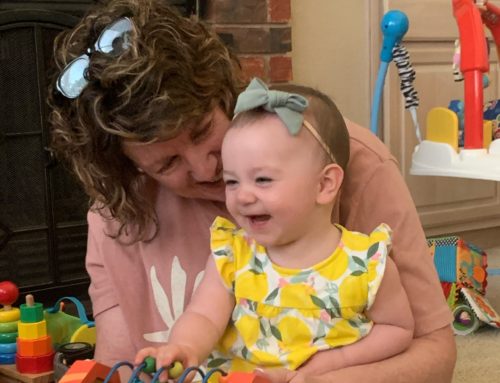Oh, the whoopin’ that is parenting. Exhausted from endless whining, we’ve all resorted to “because I said so.” But we don’t have to live there. We can’t live there . . . if we want whining kids to become winning godly adults.
Kids need our provision and protection, but they need something even greater. Kids need us to give them a gift . . . a gift they’ll never request. Too often, we parents demand this gift from our kids, yet don’t give it to them first so that they can, in turn, return it to us and God. It’s the greatest gift every child can give his or her parents – honorable obedience.
Godly legacies need honorable obedience because it prepares kids to do the same with God. How we obey God determines how our kids know to obey us. Yes, kids make their own choices, but our honorable obedience makes theirs possible. It’s the third ingredient of God’s recipe for godly families: dads who love, moms who respect, and kids who honorably obey.
Honor and obedience – doing the right thing at the right time with the right heart for the right reason – are God’s inseparable conjoined twins that endear His blessing. For example, Ephesians 6:1-2 states: “Children, obey your parents in the Lord, for this is right. Honor your father and mother—which is the first commandment with a promise.”
Jesus, the ultimate role model, had honorable obedience that didn’t just fix His disciples’ behavior; He also funneled their beliefs. Here are five tips to help you honorably obey God so that your kids can more honorably obey both God and you.
5 tips to help your kids honorably obey
- Model obedience
God adores obedience, even more than sacrifice (I Sam 15:22, Prov 21:3). Jesus wanted relief from the cross, yet He chose obedience (Luke 22:42). He modeled it for us so that we can model it for our kids. Then again, kids rarely rise above the leadership they see modeled at home. If our kids’ obedience to us is a reflection of how we obey God, what should we expect of them?
- Listen proactively
Kids need us to listen to them, which opens them up to us. Even more, though, they need us to listen to God. If we will, our kids will know it. Our character, countenance, and conduct will show it. Kids need us to proactively listen to their requests in the same way that God listens to ours (I Pet 3:12, I John 5:15, Jer 29:12-13).
- Respect boundaries
We push boundaries as adults because we did the same as kids. When parents push God’s boundaries, though, it’s a recipe for kids’ rebellion. Achan pushed God’s boundaries, and his kids paid the penalty (Joshua 7). That’s why my favorite poem to God by my daughter (my little boundary pusher as a kid) states: “Your boundaries are my meadow in which to run.”
- Apologize quickly
We all blow it sometimes. When our authenticity and integrity wane, there’s only one good option in the eyes of God and kids – apologize quickly. Not begrudgingly, hesitantly, or partially. Neither God nor kids respond well to excuses, but they love seeing our woes become God’s wows by apologizing quickly, sincerely, and transparently (II Chron 7:14, II Kings 20).
- Remember why
The most powerful human force in the universe is an undaunted, divine why. Like the Prodigal Son, returning to our why can overpower years of wandering. And like the Prodigal’s brother, we need it to overcome frustration after serving faithfully for years (Luke 15:11-32). If we’ll serve and obey God, we’ll prepare our kids to choose a similar why (Josh 24:14-15).
God commands kids to obey their parents, which lengthens their lives (Ex 20:12), pleases Him (Col 3:20), and is right (Eph 6:1). But God wants more than blind, mindless compliance. He wants honorable obedience – submission grounded in love and respect for Him. It’s a command by God with eternal blessings, not a commandeering demand by parents.
God too must wonder sometimes why raising His kids is such a whoopin.’ Thankfully, He sees the big picture we can’t. Therefore, God puts up with a lot of endless whining so that He can turn us into eternal winners.
Questions: In which of these five tips – model, listen, respect, apologize, and remember – do you need the most improvement? To which tip would your kids respond the best if they saw it modeled with excellence?






Always enjoy reading your articles so much!!!! Thanks!!!!
This is by far, my favorite. Great insight Tim!